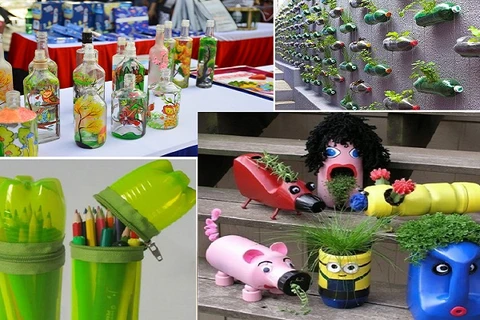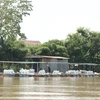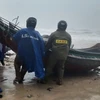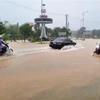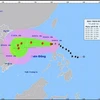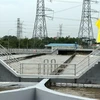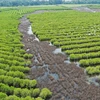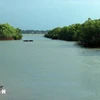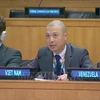Hanoi (VNA) - Vietnam needs to improve and change industrial production processes towards a circular economy model, in order to minimise plastic waste, according to experts.
To reduce the release of plastic into the environment, experts say that Vietnam needs to soon complete the building of regulations on environmental criteria and certification for projects that are granted green credits, and allowed the issuance of green bonds, in order to create a basis for mobilising resources for environmental protection activities, especially in recycling plastic waste, and turning it into resources.
Production processes need to be changed
Assoc. Prof., Dr. Luu Duc Hai, Chairman of the Vietnam Association for Environmental Economics, emphasised that plastic waste is changing the living environment and natural processes, reducing the capacity of ecosystems to adapt to climate change, and affecting social welfare.
Notably, Vietnam discharges about 1.8 million tonnes of plastic waste each year, of which there are more than 30 billion plastic bags, with 80% used only once. Vietnam ranks fourth among the top 20 countries with the highest volume of plastic waste.
Therefore, Hai stressed that it is very important to give appropriate recommendations to reduce plastic waste by applying the circular economy model in Vietnam.
 Vietnam needs to intensify management over the collection, classification and reuse of plastic waste in accordance with the circular economy model (Photo: VietnamPlus)
Vietnam needs to intensify management over the collection, classification and reuse of plastic waste in accordance with the circular economy model (Photo: VietnamPlus) Prof., Dr. Dang Thi Kim Chi, Chairwoman of the Scientific Council of the Vietnam Association for Conservation of Nature and Environment, said that in the coming time, the country needs to improve and change industrial production processes.
In addition, the State should also encourage the development of technology to replace plastic products with new environmentally friendly products to overcome the slow decomposition of waste plastic; as well as developing new technologies capable of withdrawing and recycling plastic waste.
In Vietnam, biodegradable plastics have also been researched and commercialized by many units, and have both high applicability and economic efficiency, said Chi.
Clear regulations on recycled plastic products needed
Currently, the Ministry of Natural Resources and Environment is building regulations on environmental criteria and certification for projects that are granted green credits and issued green bonds, in order to create a basis for mobilising resources for environmental protection activities, and plastic waste recycling.
However, Vietnam is lacking guidelines on the selection of recycling technology and solid waste treatment; as well as standards and regulations for recycled products, said Duong Thi Phuong Anh from the Institute of Strategy and Policy on Natural Resources and Environment.
She proposed that regulations related to the responsibilities of recycling and handling plastic waste of manufacturers, producers and importers, be issued, along with more specific instructions to be able to be applied in the reality, and regulations for recycled products to be able to compete with products made from virgin plastic.
Hai also said that Vietnam needs to intensify management over the collection, classification and reuse of plastic waste in accordance with the circular economy model. It must also step up the application of environmental economic tools in the production, business and treatment of plastic waste. These could include an environmental tax on plastic products, penalties for administrative violations on waste disposal, while improving education and communication to raise public awareness of plastic pollution./.





